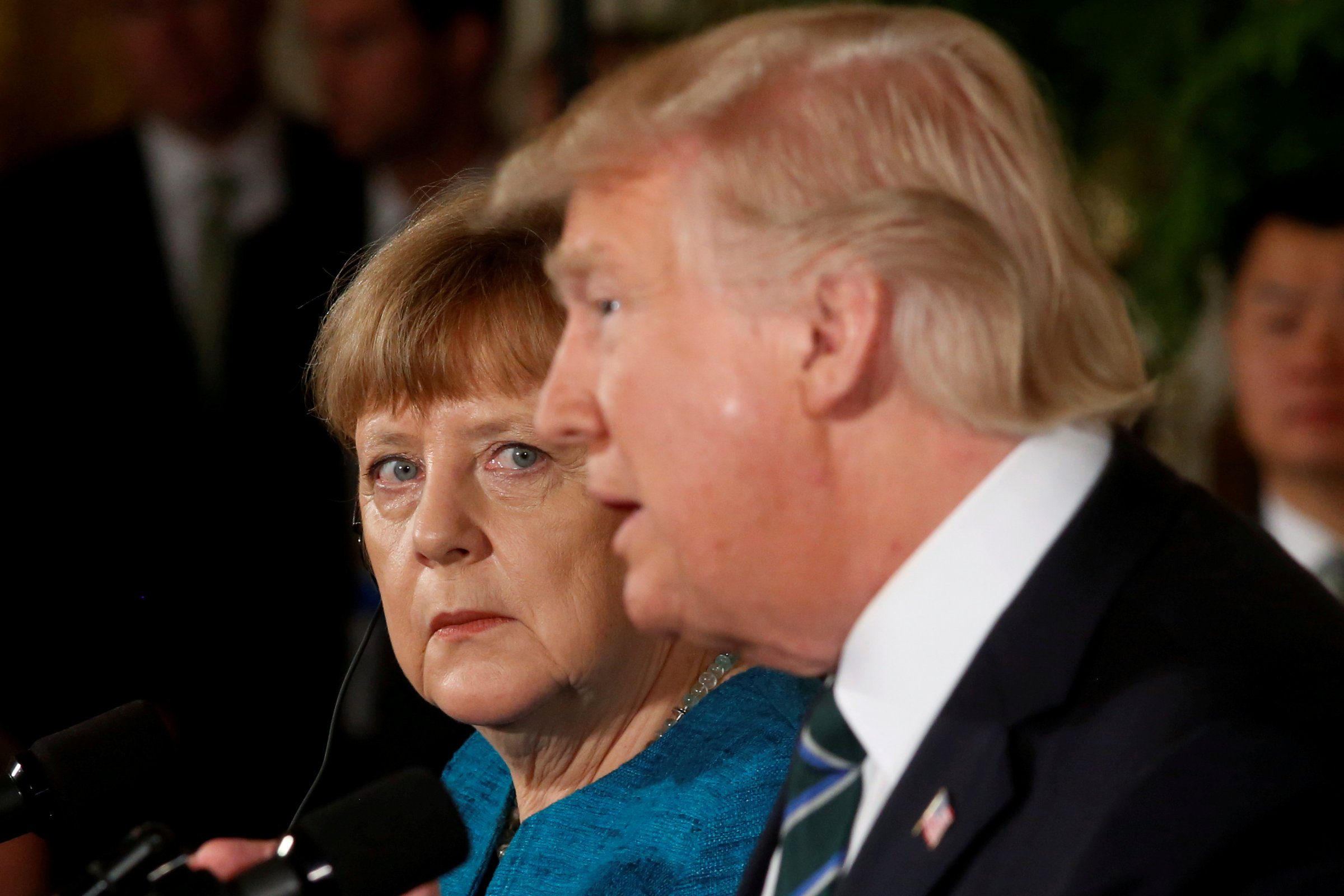 REUTERS/Jonathan Ernst
REUTERS/Jonathan Ernst
- The Trump administration extended steel and aluminum tariff exemptions to US allies on Tuesday by 30 days.
- But some experts are stressing that tensions could still escalate.
- The German auto industry could be among the biggest losers in that situation.
President Donald Trump extended steel and aluminum tariff exemptions to US allies on Tuesday, but some experts are still warning a trade conflict between some of the world’s biggest economies could still escalate. If they do, German carmakers could take a hit.
Analysts at BMI Research said they think the Trump administration is “ultimately interested” in targeting the German auto industry. “While Trump has threatened aluminum and steel exports, we believe the far bigger prize for the White House is auto exports, most significantly from Germany,” the analysts wrote in a recent note to clients.
The thinking is that Trump could use any retaliatory efforts in a trade standoff with the European Union as a reason to raise tariffs on auto imports. Currently, European Union cars to the US face a 2.5% tax, while US cars to the European Union face a 10% tax.
The president has repeatedly taken aim at Europe’s biggest auto exporter.
“If the E.U. wants to further increase their already massive tariffs and barriers on U.S. companies doing business there, we will simply apply a Tax on their Cars which freely pour into the U.S.,” he wrote on Twitter earlier this year. “They make it impossible for our cars (and more) to sell there. Big trade imbalance!”
He aired similar grievances in a closed-door meeting with German Chancellor Angela Merkel last week, CNN reports, citing people familiar with the conversation. Merkel reportedly pushed back, noting that if Germany lowered auto tariffs for the US, they would also have to for other countries.
 BMI
BMI
The German auto industry makes up one-fifth of total exports, and the US is its second-biggest destination after China, so any move by the Trump administration could have far-reaching consequences.
BMW would likely get hit the hardest, according to an analysis by Evercore ISI, followed by Volkswagen and Daimler. BMW has the highest level of US-sourced vehicles of the three companies, at 35%. Volkswagen and Daimler have 17% and 26%, respectively.
“Even if tariff barriers were dropped, the German autos market is unlikely to be under threat from an influx of American cars given consumer preferences for smaller more fuel efficient cars in the EU,” BMI said.















